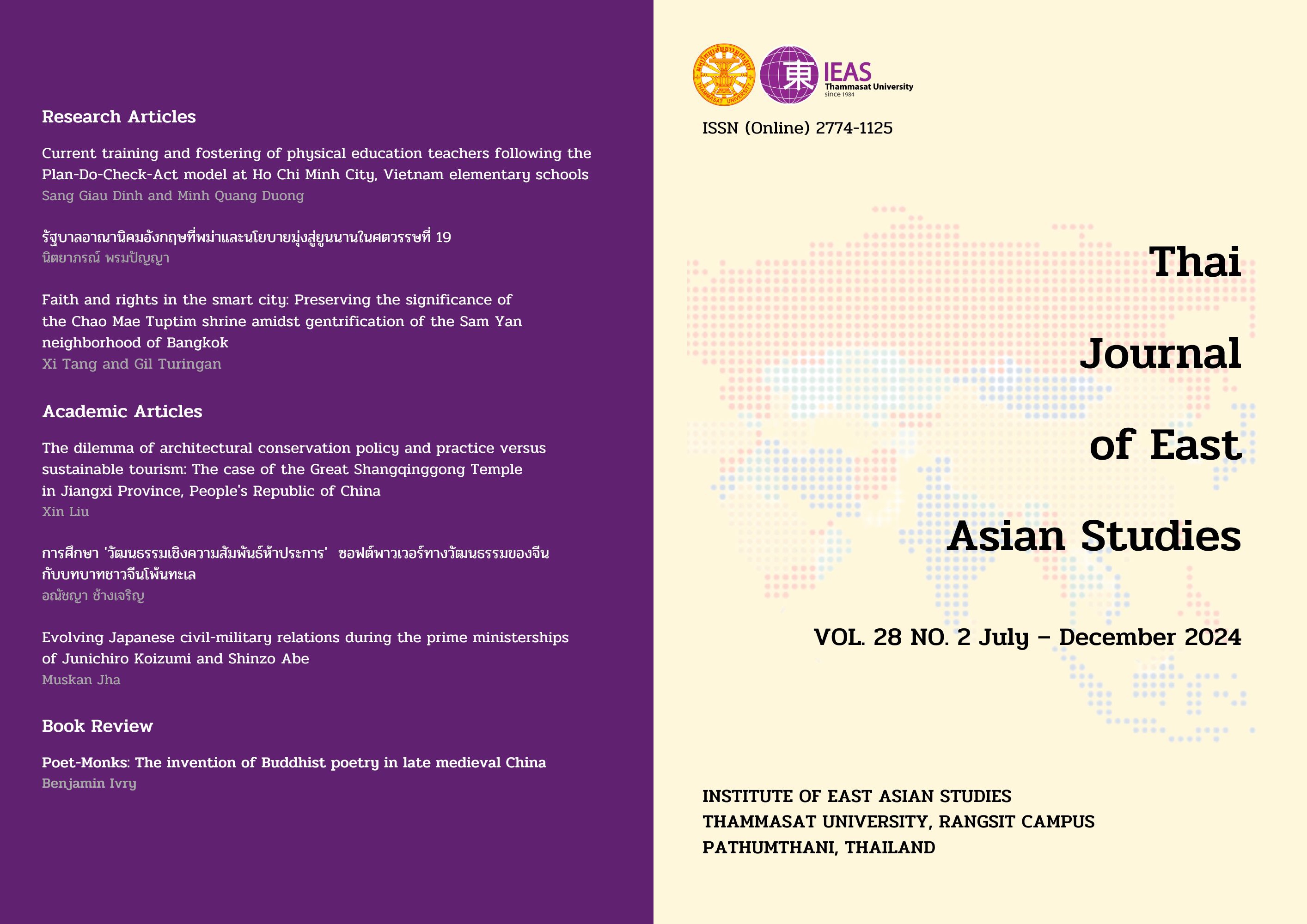Poet-Monks: The Invention of Buddhist Poetry in Late Medieval China
Keywords:
poet monks, Buddhism, literature, late Tang dynastyAbstract
This book examines how poet monks tried to unify Buddhist and literary practice in the late Tang dynasty (860–960 CE), contradicting a general view of the time as one of artistic decadence. Yet Buddhism was seen by critics of this era as out of place in the literary domain.
Poetry by monks expressing religious sentiments was derided by numerous contemporary readers as being a potential distraction from pious observance.
Extending this disdain, posterity in the form of anthologies and textbooks of classical Chinese poetry have tended to neglect poems by Buddhist monks, while general histories of Tang poetry likewise largely overlook them. Yet Guanxiu and a contemporary writer, Qiji deserve attention today for their prolific efforts to unify their experiences with life and religious faith.
For many generations, the literary flourishes of Qiji and Quanxiu made their fellow Buddhists suspicious of their preoccupation with literature.
At the same time, Chinese literati did not find the effusions of the poet monks to their taste. Indeed, the Classical Prose Movement (gǔwén yùndòng) of the late Tang dynasty and the Song dynasty advocated clarity and precision rather than the florid parallel prose style that had been popular since the Han dynasty.
In this context, poetry readers found justification for rejecting the poet monks for using unrefined language in verse as well as an old-fashioned style.
Guanxiu, Qiji, and other poets failed to dissolve the opposition between literary and Buddhist practice in their works in past centuries, but they are nevertheless worth reading today for the light they shed on poetics and worship in a Buddhist context.
Downloads
References
Chen, Yu-shih (1988). Images and Ideas in Chinese Classical Prose: Studies of Four Masters. Stanford University Press.
Foulk, T. G. (2004). Chanyuan qinggui and Other ‘Rules of Purity’ in Chinese Buddhism. In S. Heine & D. S. Wright (Eds.), The Zen Canon: Understanding the Classic Texts (pp. 275-312). Oxford University Press.
Hinton, D. (2008). Classical Chinese Poetry: An Anthology. Farrar, Straus and Giroux.
Kwok-yiu, W., & 王國堯. (2015). THE MID-TANG SCHOLAR-MONK SHENQING AND HIS “BEISHAN LU.” Monumenta Serica, 63(1), 32–78. http://www.jstor.org/stable/26159116
Mazanec, T. J. (2024). Poet-Monks: The Invention of Buddhist Poetry in Late Medieval China. Cornell University Press.
Protass, J. (2021). The Flavors of Monks’ Poetry: On a Witty Disparagement and Its Influences. Journal of the American Oriental Society, 141(1), 125-150.
Waley, A. (1919) More Translations from the Chinese. Alfred A. Knopf
Downloads
Published
How to Cite
Issue
Section
License
Copyright (c) 2024 Thai Journal of East Asian Studies

This work is licensed under a Creative Commons Attribution-NonCommercial-NoDerivatives 4.0 International License.



